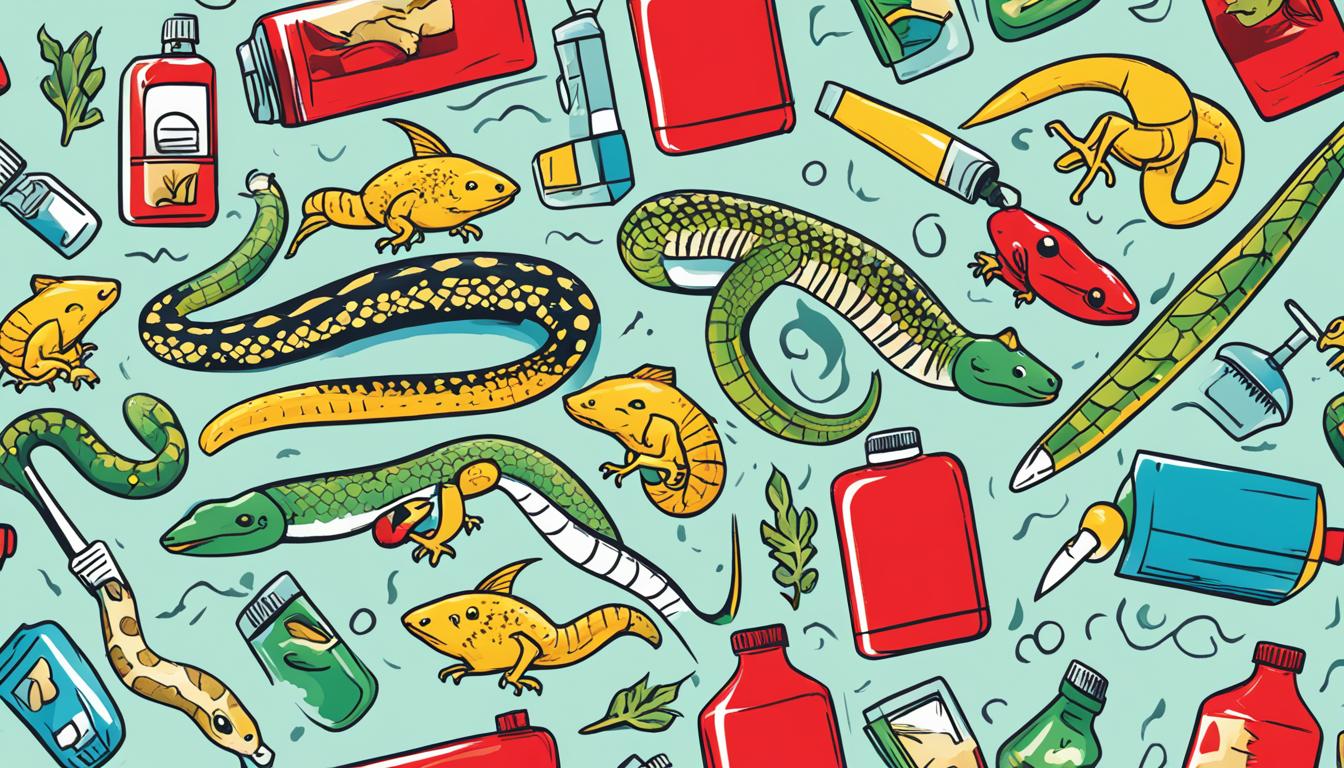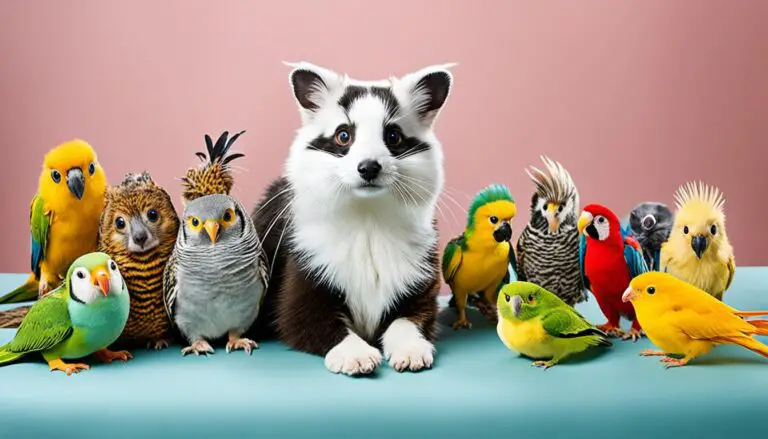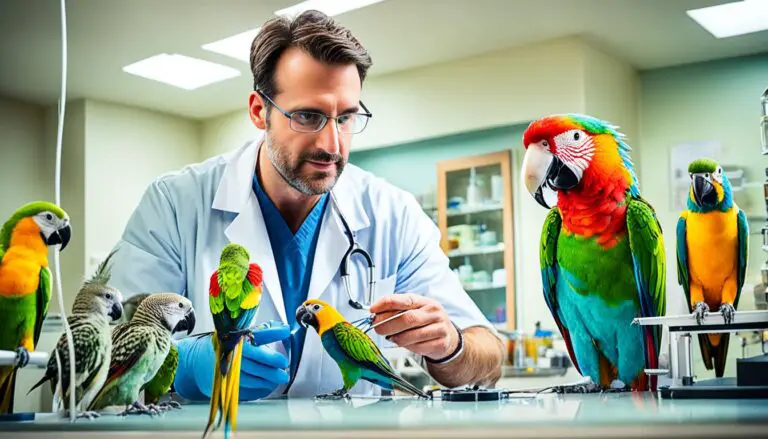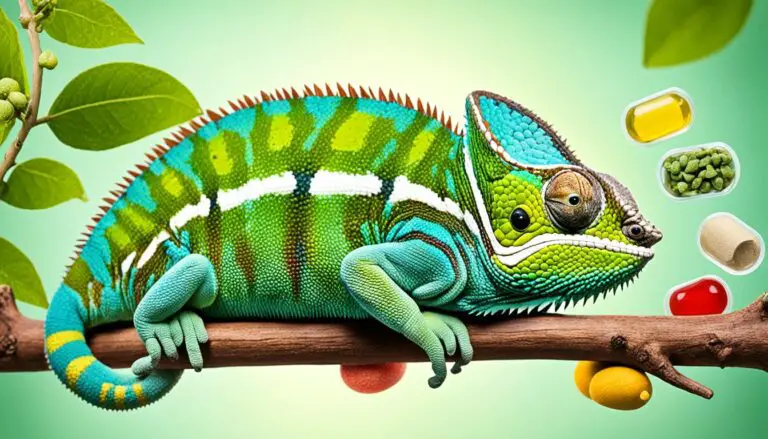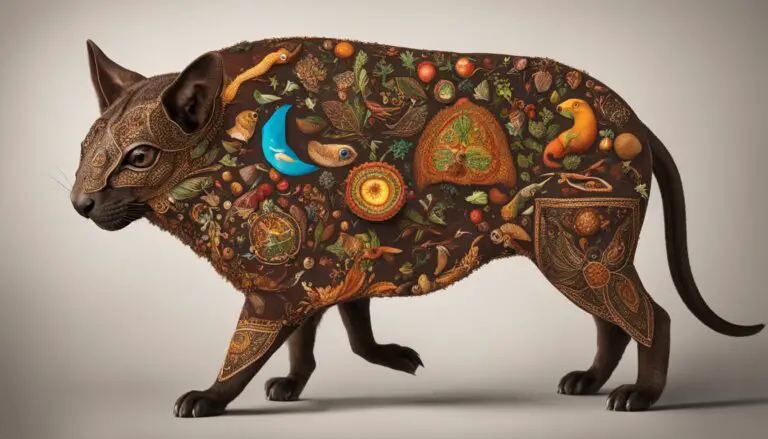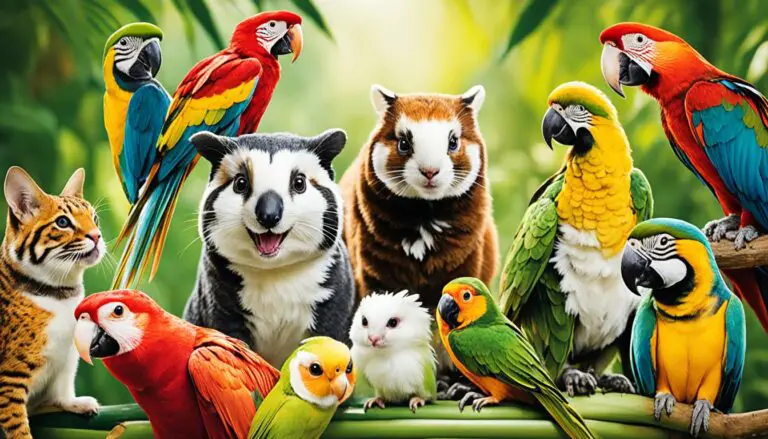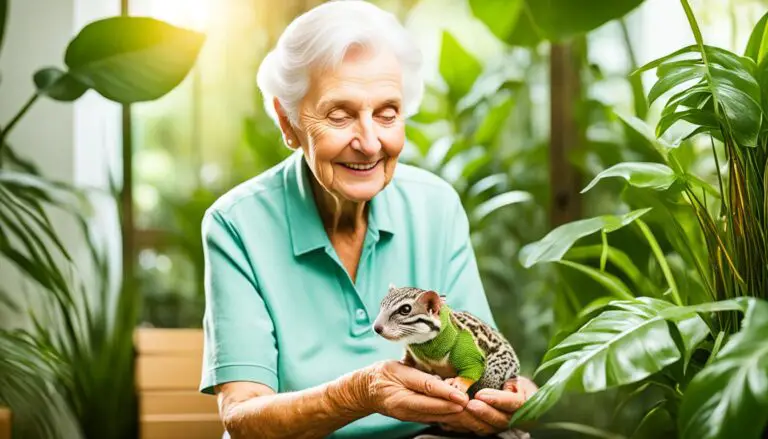Exotic Pet Toxicity: Risks & Prevention Tips
Exotic pet toxicity refers to the potential harm caused by certain substances and foods to exotic pets. These pets, including lions, tigers, wolves, bears, reptiles, and non-human primates, are not suitable as pets due to their wild nature and potential dangers. They require specialized care and can pose risks to their owners and others.
Key Takeaways:
- Exotic pets, such as lions, reptiles, and non-human primates, are not suitable as pets due to their wild nature and potential dangers.
- The exotic pet trade is a major source of exotic animals, leading to abandonment and poor conditions for many animals.
- Exotic animals pose a significant risk to public safety, with incidents of attacks and escapes.
- Exotic animals can carry zoonotic diseases, such as salmonella, which can be transmitted to humans.
- To prevent exotic pet toxicity, it is important to take precautions, such as keeping toxic substances and foods out of their reach and practicing proper hygiene.
The Exotic Animal Pet Trade
The exotic pet trade is a significant contributor to the availability of exotic animals as pets. These animals are either captured from their natural habitats or bred in captivity specifically for sale. There are over 1,000 websites that offer exotic animals for sale, making it easily accessible to potential buyers.
Unfortunately, many exotic pet sellers do not provide adequate information about the legal regulations or the specific needs and dangers associated with owning these animals. This lack of education and understanding creates a serious problem for both the animals and the people who purchase them.
“The exotic pet trade leads to the abandonment, euthanization, or poor conditions for many unwanted exotic animals.”
It is important to recognize the dangers of the exotic pet trade. This industry often operates without considering the welfare of the animals and can result in negative consequences for both the animals themselves and the owners who lack the knowledge and resources to properly care for them.

Public Safety Risk
Exotic animals can pose a significant risk to public safety, with the potential for attacks and escapes that endanger both humans and other animals. These incidents highlight the dangers associated with keeping exotic animals as pets and the need for stricter regulations. The following examples illustrate the public safety risks of exotic animals:
Exotic Animal Attacks
There have been numerous instances of exotic animals attacking humans and other animals. Monkeys and large cats, such as lions and tigers, are commonly kept as pets and have been responsible for serious injuries and even fatalities. These animals possess natural predatory instincts that make them dangerous when confined and unable to express their natural behaviors. The lack of proper training and containment measures can result in tragic consequences for both pet owners and the general public.
Escapes and Bites
“Owning a reptile as a pet comes with its own set of risks. There have been several reports of reptiles, including snakes, escaping from their enclosures and posing a safety hazard to those around them. Additionally, bites from these animals can result in serious injuries and medical complications. Proper containment and handling measures should be in place to prevent escapes and minimize the risk of bites.” – Dr. Jessica Martinez, Veterinarian
These incidents underscore the need for responsible ownership of exotic animals and the importance of public awareness regarding the potential dangers they pose. Stricter regulations and education on the risks associated with keeping these animals as pets can help ensure public safety.
| Exotic Animal | Public Safety Risks |
|---|---|
| Monkeys | Aggression, potential for serious injuries and diseases |
| Large Cats (e.g., lions, tigers) | Predatory instincts, risk of attacks on humans and other animals |
| Snakes and Reptiles | Escapes, bites, and risk of transmitting diseases |

Human Health Risk
Exotic animals can carry zoonotic diseases that can be transmitted to humans. One of the common bacterial infections associated with these animals is reptile-associated salmonellosis. Reptiles, such as snakes and turtles, often carry salmonella, a bacteria known to cause severe gastrointestinal symptoms in humans. In addition, macaque monkeys can be carriers of the Herpes B virus, which can be fatal to humans if transmitted.

Zoonotic diseases, including exotic pet diseases, pose a significant health risk, especially to vulnerable populations such as young children, the elderly, and individuals with weakened immune systems. Direct contact with the animals or their environments can lead to the transmission of these diseases. Symptoms can range from severe diarrhea, fever, and vomiting to life-threatening complications.
Preventing Zoonotic Infections
To minimize the risk of zoonotic infections, it is important to take necessary precautions when handling exotic animals:
- Always wash hands thoroughly with soap and water after coming into contact with exotic animals or their habitats.
- Ensure that reptile and amphibian habitats are cleaned regularly to reduce the risk of bacterial contamination.
- Be cautious when handling reptiles and amphibians and avoid close contact, especially with young children and individuals with compromised immune systems.
- If bitten or scratched by a reptile, immediately clean the wound with warm soapy water and seek medical attention if necessary.
“Zoonotic diseases, including exotic pet diseases, pose a significant health risk, especially to vulnerable populations.”
By following these precautions, individuals can reduce the risk of contracting zoonotic diseases associated with exotic pets. It is important to prioritize both human and animal health and ensure responsible ownership to prevent the spread of these potentially dangerous diseases.
Tips for Preventing Exotic Pet Toxicity
To prevent exotic pet toxicity, it is important to take certain precautions. Here are some tips to keep your exotic pet safe and healthy:
1. Keep Toxic Houseplants Out of Reach
Many houseplants can be toxic to pets, including exotic animals. Keep plants such as lilies, sago palms, and aloe vera out of your pet’s reach or replace them with pet-safe alternatives. It’s always best to research any plants before bringing them into your home to ensure they are safe for your exotic pet.
2. Be Careful with Human Foods
Some human foods can be toxic to pets, so be cautious in the kitchen. Avoid feeding your exotic pet chocolate, xylitol, coffee beans, grapes, onions, or any other foods that are known to be toxic to animals. Keep countertops clean and dispose of food scraps properly to prevent your pet from accessing harmful substances.
3. Store Medications and Chemicals Safely
Make sure to store all medications, cleaning products, and chemicals in secure cabinets or high shelves that are out of your exotic pet’s reach. Exotic animals can be curious and may accidentally ingest toxic substances if they have access to them. Always use childproof caps and keep the ASPCA Animal Poison Control Center number (888-426-4435) readily available.
4. Be Aware of Outdoor Hazards
If you allow your exotic pet outdoors or have an outdoor enclosure, be aware of potential hazards in the yard. Secure pools and ponds to prevent drownings, keep chemicals and pesticides locked away, and securely close trash cans to avoid your pet getting into toxic substances. Regularly inspect your outdoor area for any potential dangers.
5. Keep Emergency Contact Numbers Handy
In case of an emergency, it’s essential to have the contact information for the ASPCA Animal Poison Control Center readily available. They can provide guidance if your exotic pet ingests something toxic. Additionally, have the contact information for an exotic pet veterinarian in case your pet requires immediate medical attention.
By following these tips, you can help prevent exotic pet toxicity and create a safer environment for your beloved exotic companion.
Importance of Proper Reptile and Amphibian Care
Reptiles and amphibians require proper care to ensure their health and well-being, as well as to prevent diseases and minimize the risk of zoonotic infections. By following proper pet husbandry practices, reptile and amphibian owners can create a safe environment for their pets and protect their own health.
One crucial aspect of reptile and amphibian care is maintaining clean habitats and supplies. Regular cleaning of enclosures, substrate, and water bowls helps prevent the growth of harmful bacteria and parasites. It’s important to use appropriate cleaning solutions and disinfectants that are safe for reptiles and amphibians, as some household products can be toxic to them.
Another key aspect is handling reptiles and amphibians with caution. While these animals can make fascinating and rewarding pets, it’s essential to remember that they may carry bacteria, such as salmonella, which can be transmitted to humans. Washing hands thoroughly with soap and water after handling these animals, their supplies, or cleaning their habitats is crucial to prevent the spread of harmful bacteria.
Special care should be taken when it comes to vulnerable individuals, such as young children, the elderly, and those with weakened immune systems. These individuals are more susceptible to infections and should avoid direct contact with reptiles and amphibians or their environments.
To ensure the well-being of reptiles and amphibians, understanding their specific care requirements is vital. Different species have different dietary needs, temperature and humidity requirements, and socialization needs. It’s important for pet owners to educate themselves about their pets’ specific needs and provide appropriate housing, nutrition, and enrichment activities.
Routine veterinary care is also essential for reptiles and amphibians. Regular check-ups can help identify and prevent potential health issues, ensuring early intervention and treatment. A veterinarian experienced in reptile and amphibian care can provide valuable guidance on diet, habitat setup, and overall well-being.
Reptile and Amphibian Care Checklist
| Aspect | Guidelines |
|---|---|
| Habitat |
|
| Feeding |
|
| Handling |
|
| Veterinary Care |
|
Proper care and husbandry practices are essential for the health and happiness of reptiles and amphibians. By implementing these guidelines, pet owners can provide a safe and enriching environment for their pets while minimizing the risk of reptile and amphibian diseases.

Proper Hygiene Practices
Proper hygiene practices play a crucial role in preventing zoonotic infections and maintaining hand hygiene when handling reptiles and amphibians.
When interacting with these animals, it is essential to follow these hygiene guidelines:
- Wash Hands: Always wash hands with soap and running water after touching or playing with reptiles and amphibians.
- Cleaning Habits: After feeding them or cleaning their habitats, it is important to wash hands thoroughly to remove any potential pathogens.
- Before Meals: Prior to eating or drinking, make sure to wash hands to prevent any possible contamination.
If soap and water are not available, make use of hand sanitizer with at least 60% alcohol content. However, it is crucial to supervise young children to prevent them from swallowing it.
Additionally, it is essential to maintain separate storage and feeding areas for reptile supplies and containers to avoid cross-contamination with human food areas.
Comparison of Hand Hygiene Methods
| Hand Hygiene Method | Effectiveness | Advantages | Disadvantages |
|---|---|---|---|
| Handwashing with soap and water | Highly effective in removing germs | Accessible and easily available | Requires access to soap and running water |
| Hand sanitizer (60% alcohol or higher) | Effective in killing most germs | Portable and convenient | Not as effective against certain types of germs, such as norovirus |
“Proper hand hygiene is the key to preventing zoonotic infections and ensuring the safety of both humans and reptiles and amphibians.”
By following these hygiene practices, pet owners can minimize the risk of zoonotic infections and maintain a safe environment for both themselves and their pets.
Preventing Reptile Bites and Scratches
Reptile bites and scratches can result in serious injuries and increase the risk of infections. To ensure your safety and prevent reptile bites and scratches, follow these guidelines:
- Avoid kissing or holding reptiles close to your face to minimize the risk of getting bitten or scratched.
- Make sure the reptile sees you before picking it up. Sudden movements or surprising the reptile may trigger defensive behaviors.
- Always use tongs or tweezers to feed reptiles, especially if they have a tendency to bite during feeding.
- Handle reptiles regularly to acclimate them to human contact, making them less likely to bite or scratch when being held.
If you do happen to get bitten or scratched by a reptile, follow these steps:
- Wash the wound immediately with warm soapy water to reduce the risk of infection.
- If the bite or scratch is deep or shows signs of infection (redness, swelling, pus), seek medical attention promptly.
- Monitor the wound for any unusual symptoms or signs of infection, such as fever, pain, or increased redness.
By practicing caution and proper handling techniques, you can minimize the chances of reptile bites and scratches, ensuring a safe and enjoyable interaction with these fascinating creatures.
Remember, being mindful of reptile behavior and following the proper precautions is key to preventing injuries and maintaining a harmonious relationship with these unique pets.
Conclusion
Exotic pet toxicity poses significant risks to both human and animal health. It is crucial to understand the dangers associated with keeping exotic animals as pets and take proactive measures to prevent toxicity. By being aware of potential hazards, practicing proper hygiene, and providing appropriate care for reptiles and amphibians, pet owners can effectively safeguard themselves and their pets from the harmful effects of exotic pet toxicity.
Throughout this article, we have explored the various risks associated with exotic pet ownership. The possession of wild and potentially dangerous animals as pets is strongly discouraged by reputable organizations such as the American Veterinary Medical Association, the USDA, and the CDC. Exotic animals require specialized care, housing, diet, and maintenance that the average person is ill-equipped to provide.
To prevent exotic pet toxicity, pet owners must prioritize pet safety and be diligent in their efforts. It is essential to keep toxic substances, such as harmful plants and foods, out of reach of pets. Additionally, maintaining proper hygiene when handling reptiles and amphibians can significantly reduce the risk of zoonotic infections. Regular veterinary care and adherence to recommended husbandry practices for exotic pets are indispensable in preventing diseases and ensuring the well-being of both pets and humans.
By heeding these prevention tips and educating ourselves on the risks associated with exotic pet ownership, we can avoid unnecessary harm and promote the well-being of both animals and humans. Let us prioritize responsible pet ownership to ensure the safety and health of all living beings involved.
FAQ
Are exotic animals suitable as pets?
Where do exotic animals come from?
Do exotic animals pose a safety risk?
Can exotic animals transmit diseases to humans?
How can I prevent exotic pet toxicity?
Why is proper care important for reptiles and amphibians?
What are the hygiene practices around reptiles and amphibians?
How can I prevent reptile bites and scratches?
Source Links
- https://www.bornfreeusa.org/campaigns/animals-in-captivity/the-dangers-of-keeping-exotic-pets/
- https://vetmed.vt.edu/news/2023/pet-poison-prevention.html
- https://www.cdc.gov/healthypets/pets/reptiles.html
Peter Stones is the founder of Exotic Pets Place, the leading online resource for exotic pet care information.
With over 10 years of hands-on exotic pet ownership experience, he is deeply passionate about sharing his expertise to help others properly care for their unusual pets.
When he's not writing extensively researched articles or connecting with fellow exotic pet enthusiasts worldwide, you can find Peter at home tending to his own beloved menagerie of exotic animals.

